Voronezh State Technical University Introduction
Voronezh State Technical University is the flagship university of the Voronezh region, combining the educational, scientific, teaching and technical capabilities of two leading technical universities in the region, providing higher education courses and further and advanced training for professionals in industrial and construction enterprises and organizations.
Overview
Student size: Currently, there are about 20,000 students studying here, including international students from 57 countries in Asia, Africa, South America, the Middle East and the CIS.
Faculty: It has 1,000 highly qualified and experienced professional teachers, 160 of whom have obtained doctoral degrees in their respective fields.
History and establishment time
The university was established on August 28, 1956, formerly known as the Voronezh Evening Mechanical Manufacturing Institute, reorganized into the Voronezh Evening Polytechnic Institute on July 17, 1958, renamed Voronezh Polytechnic Institute on June 19, 1962, and officially renamed Voronezh State Technical University on September 22, 1993, and On March 17, 2016, according to Order No. 224 of the Ministry of Education and Science of the Russian Federation, it was reorganized with the Voronezh State University of Architecture and Civil Engineering to become the regional flagship university of the Voronezh region.
School Strength
Teaching Achievements: It provides undergraduate, postgraduate and doctoral degree programs at multiple levels, covering a variety of fields such as engineering, technology, economics, humanities and natural sciences. Graduates have performed well in related industries in Russia and internationally, and have provided a large number of professional talents for the Voronezh region and other places.
Scientific Research Strength: It has advanced scientific research infrastructure, including an interdepartmental engineering center equipped with a unique high-performance computing cluster and specially designed software, a center for the collective use of scientific equipment, an innovative business incubator for students and academic staff named after Professor Y.M. Borisov, and an association of small innovative enterprises established with the participation of the university. The school's scientific research results have been widely used in the fields of mechanical and aerospace engineering, radio electronics and information technology, energy, and construction, promoting the development of regional industries.
International cooperation: As a university with a high degree of internationalization, it has established cooperative relations with universities and research institutions in many countries, carried out student exchange, joint research and other projects, and actively promoted international cooperation and exchanges.
Nature of the institution
A public non-profit higher education institution.
Educational philosophy
Focus on practical training and hands-on skills training to ensure that students have the skills and knowledge needed to succeed in their chosen careers, emphasize the combination of theory and practice, cultivate students' innovation and practical problem-solving capabilities, and enable students to better adapt to the needs of social and economic development.
Key laboratories and disciplines
Key laboratories: The school has a number of key laboratories, such as the High Performance Computing Cluster Laboratory of the Interdepartmental Engineering Center, which provides advanced experimental equipment and technical support for scientific research projects.
Key disciplines: Mechanical and aerospace engineering, radio electronics and information technology, energy, architecture, civil engineering, computer security, economics and other disciplines are the school's key development disciplines, and have achieved remarkable results in teaching and scientific research.
Departments
The school has the following departments:
School of Architecture and Urban Planning
School of Civil Engineering
School of Engineering Systems and Structures
School of Information Technology and Computer Security
School of Mechanical Engineering and Aerospace Engineering
School of Radio Engineering and Electronics
School of Economics, Management and Information Technology
School of Energy and Control Systems
School of Road and Transportation
School of Culture and Education
Military Training Center
School of International Education
School of Architectural Engineering Technology
Ranking
In the 2024 ranking, the school's world ranking 4184, and 126 in Russia.
Ranked 401-450 in the 2022 QS Emerging Europe and Central Asia rankings.
Expenses
Undergraduate tuition fees are usually between 0-42,500 euros per year, and master's tuition fees are between 0-56,000 euros per year, depending on the specific major.
Campus
Teaching facilities: The campus has modern teaching buildings, laboratories, libraries, computer centers and other teaching facilities, providing students with good learning conditions.
Living facilities: The school has two modern dormitories with various types of dormitory rooms, including double rooms and single rooms for an additional fee. The dormitory is connected to the school by a subway extension line, with convenient transportation. In addition, there are dining facilities such as canteens and cafes on campus, as well as living and entertainment facilities such as sports centers.
-

Peter the Great St.Petersburg Polytechnic University
-
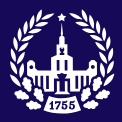
Moscow State University M. V. Lomonosov
-
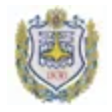
Bauman Moscow State Technical University
-
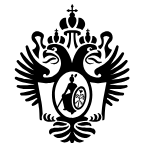
St. Petersburg State University
-

Tomsk State University
-

Peoples' Friendship University of Russia
-
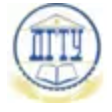
Don State Technical University
-
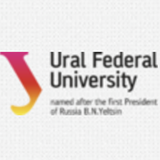
Ural Federal University
-

Moscow Institute of Physics and Technology
-
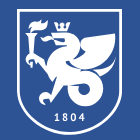
Kazan Federal University
-

Mesoamerican University
-

Istmo University
-

Mariano Galvez University of Guatemala
-

Regional University of Guatemala
-

Galileo University
-

Francisco Marroquín University
-

Rafael Landívar University
-

University of the Valley of Guatemala
-

University of San Carlos of Guatemala
-

Technological Institute of Tlaxcala Plateau
-

Golfo University
-

Technological University of South Sonora
-

Technological University of Huejotzingo
-

Tizimín Institute of Technology
-

Chilpancingo Institute of Technology

